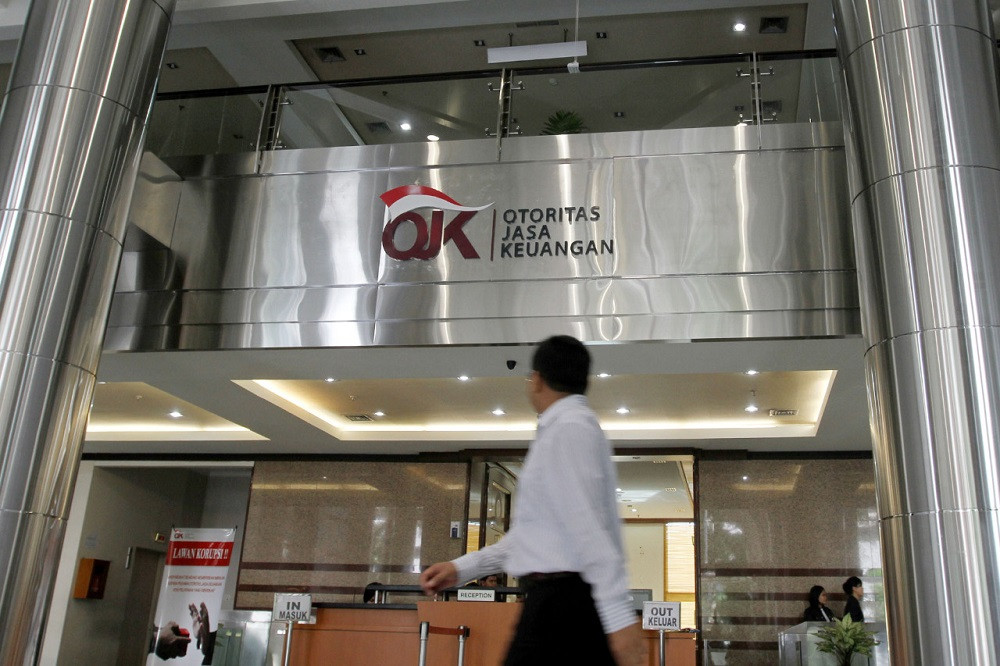Popular Reads
Top Results
Can't find what you're looking for?
View all search resultsPopular Reads
Top Results
Can't find what you're looking for?
View all search resultsUncertainty looms as House to allow BI to supervise banks
In a draft revision of the 1999 and 2004 BI laws, the House's Legislative Body (Baleg) proposed that the central bank take over the job of supervising banks from the Financial Services Authority (OJK).
Change text size
Gift Premium Articles
to Anyone
T
he House of Representatives' proposal to bring back banking supervision to Bank Indonesia (BI) has drawn criticism as experts warn of possible moral hazard and regulatory uncertainty.
In a draft revision of the 1999 and 2004 BI laws, the House's Legislative Body (Baleg) proposed that the central bank take over the job of supervising banks from the Financial Services Authority (OJK). The gradual takeover process is expected to be completed by Dec. 31, 2023, at the latest.
The OJK was established in 2011 to oversee the financial industry and it was modeled on the financial services regulatory structure that prevailed in the United Kingdom. It assumed the role of regulator and supervisor of banks in 2013, taking the responsibility from the central bank.
The plan to return the role to the central bank will put the credibility of lawmakers and the government at stake, said University of Indonesia (UI) economist Fithra Faisal, adding that the bill would result in a “policy flip-flop”.
“The current regulation exists because back then, the central bank was considered overwhelmed with its many policy objectives,” he told The Jakarta Post on Tuesday. “If the government and the House want to be fair, the OJK must be given time and more resources to function properly.”
The proposal came after media reports emerged in July saying President Joko “Jokowi” Widodo was considering issuing an emergency decree to return the banking regulation to the central bank over his dissatisfaction with the OJK’s performance during the pandemic.
Critics claimed the OJK was performing poorly in supervising the country’s financial system as shown by a string of defaults in several insurers and asset management companies. The Supreme Audit Agency (BPK) recently warned the OJK over what it called the inadequate supervision of eight banks, including Bank Bukopin, which currently faces liquidity issues.
Permata Bank economist Josua Pardede said there were also concerns that allowing BI to supervise banks could lead to another moral hazard, such as the Bank Indonesia Liquidity Support (BLBI) case, a bailout scandal that BPK’s audit in 2000 said had caused more than Rp 138 trillion (US$9.35 billion) in state losses in the wake of the 1998 Asian financial crisis.
“The most important thing to do now is to strengthen the coordination between macroprudential and microprudential supervision that could make the financial system more stable and boost banks’ intermediary function,” he told the Post, adding that returning the supervision role to the central bank would not make “a significant difference in terms of performance”.
The bill also mentions that BI can provide emergency financing facilities to systemically ailing banks, sourced from the central bank and the government. Further details on the facility and banks’ criteria will be regulated in another law.
BI representatives have declined to comment on the draft.
OJK expert staff Ryan Kiryanto said on Wednesday that the plan to return banking supervision to the central bank could potentially create miscommunication and miscoordination.
“We have to remember that the reason behind the OJK’s establishment was the need for integrated supervision for all financial institutions to maintain financial stability,” he said during a live-streamed press briefing, stressing that the need had become even more necessary today as financial conglomerates dominated the country’s financial services industry.
The Asian financial crisis prompted banks, as well as insurance, financing and brokerage firms to consolidate under business conglomerates for efficiency and added-value purposes. OJK data shows that 48 financial conglomerates controlled Rp 6.93 quadrillion or 65.8 percent of Indonesia’s financial services assets, worth Rp 10.54 quadrillion as of December 2018.
“The bill is a political domain. Right now, we are focused on carrying out our duty to provide integrated supervision, maintaining financial system stability and accelerating economic recovery during this pandemic,” Ryan said.
The bill, which also scraps BI’s independence and gives power to the government to take part in monetary policy-making, will be deliberated at the House with the government’s representatives.
Baleg deputy chairman Achmad Baidowi said on Monday the bill was subject to changes.
Finance Minister Sri Mulyani Indrawati, meanwhile, stressed on Friday that the government would maintain a credible and independent central bank in a bid to maintain stability and market trust.
“The BI Laws revision, which is initiated by the House, has not yet been discussed by the government,” she said.
“The President’s statement is clear that monetary policy must remain credible, effective and independent,” she added, referring to Jokowi’s pledge during a briefing with foreign correspondents on Tuesday.
The government is currently formulating a plan to reform the country’s financial system to strengthen crisis prevention and handle issues more effectively in the financial industry, Sri Mulyani went on to say, adding that it looks to strengthen data and information flow with members of the Financial System Stability Committee (KSSK), as well as to review macroprudential and microprudential supervision.










